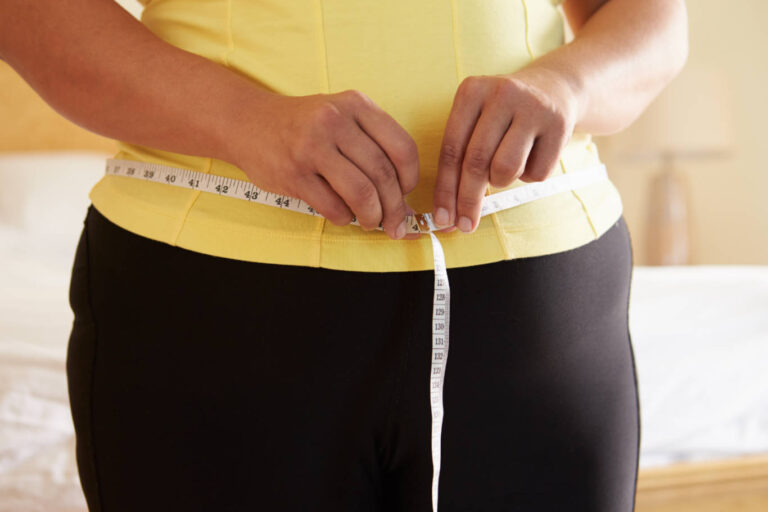So, you’ve been working out at the gym, taking your daily water intake, and faithfully watching what you eat only for you two wake up one day and find out that you’ve added some pounds. Just as you were about to scream your head off, you realize that your periods are due. Could there be a link between periods and weight gain?
Is it possible to gain weight during Periods?
Simply put, yes. Weight gain is a common symptom in most women. The added weight usually occurs during the week preceding their menstrual cycle. The gain is mostly due to fluid retention (sometimes combined with constipation), as well as increased appetite.
According to Raquel Dardik M.D., a gynaecologist at NYU Langone Medical Center, “the weight gain occurs just days before your menstrual cycle, but you will go back to normal once they end.” She explains that the pre-period weight can be up to 5-10 pounds. Science has stepped up in explaining the biology behind the weight gain. Some of the causal factors explained by science include:
1. Fluid Retention
The fluctuation in the ovarian hormones (estradiol and progesterone) that occurs days before your cycle affects the tissues in your body. The drop in progesterone relaxes the smooth muscle tissue and destabilizes the capillary walls. As a consequence, the tissues begin taking up more fluid resulting in bloating, and weight gain. Tissues involved in the regulation of body fluid and sodium content are sensitive to the alterations of the two hormones in a woman’s body. The secretion of estrogen on the 1-14th day of the cycle, followed by ovulation that triggers progesterone secretion affect the kidney tubules, the hypothalamus, and the cardiovascular system. Both hormones alter the homeostatic balance of body fluid and tonicity. As a consequence, a woman can gain from 5-10 pounds from the fluid retention triggered by the hormone fluctuations.
2. Increased Appetite
Some women experience a change in their eating habits on the days just preceding their menses. It is around this time that you crave energy giving foods such as chocolate, other confectionaries, and carbohydrates. One theory put forward to explain this change is that the body is anticipating pregnancy. As a result, the increased appetite may be the body’s way of ensuring that it has enough calories to support the pregnancy. Another line of thought is a decrease in the level of magnesium content. During the pre-period stage, there is a decrease in the magnesium levels. This decline triggers low levels of insulin. As a consequence, you experience increased levels of food cravings, especially for glucose. The body perceives that there is a low supply of glucose in the body. This in turn leads to the over-eating, and the food cravings that contribute to overall weight gain during your periods.
Overall, the weight gain you experience before or during your periods is part of the biological, evolutionary process. The underlying causal factor is the hormone fluctuations that in turn trigger a chain of events in the body. However, you do not have to feel bad about this. Usually, the PMS symptoms disappear once your periods end. Furthermore, the hormones can lead to emotional eating. At this time in your cycle, it is advisable to keep a positive attitude and let the body do its job.
How long will the weight gain last?
You are likely to observe your body going back to normal after your periods.
How to handle it
One way to keep the weight gain symptom in check is to maintain a healthy lifestyle. Eating healthy by avoiding carb rich comfort food as well as processed or salty foods can help minimize the risk of bloating, and fluid retention. Furthermore, making some nutritional adjustments, for instance, including vitamin B rich foods in your diet, as well as potassium rich foods such as avocado can help minimize the bloating and boost proper fluid elimination.
It is important to understand your food cravings during this period. This will help you avoid the dietary downfalls instigated by the hormone change. You can opt for small healthy meals in between the main meals to keep the cravings in check. Also, you can consciously restrict your caloric intake by exercising control and moderation. Go for high-fibre foods, low-sugar, low-fat foods as an alternative to the sugar rich foods. Lastly, working up a sweat can help you keep the weight in check. Exercise helps you get rid of the extra water weight.
How to deal:
The present culture puts a lot of pressure on women to maintain a healthy weight. Whereas it is important to get that great figure, you should understand that the weight gain during your periods is a normal and temporary symptom of PMS. You can take solace in the reality that you are not alone on this issue. Alternatively, if you notice that you gain weight during your menses and the weight never goes away, you can seek the advice of a medical practitioner.
References:
- Christine Ammer. The Encyclopedia of Women’s Health, Infobase Publishing
- https://www.shape.com/lifestyle/mind-and-body/why-you-gain-weight-your-period
- Stachenfeld, N. S. (2008). Sex Hormone Effects on Body Fluid Regulation. Exercise and Sport Sciences Reviews, 36(3), 152–159. http://doi.org/10.1097/JES.0b013e31817be928
- http://www.stylecraze.com/articles/major-causes-of-weight-gain-before-and-after-periods/#gref
- https://www.shape.com/lifestyle/mind-and-body/truth-about-pms-weight-gain-and-fat-days
- https://www.livestrong.com/article/103781-prevent-weight-gain-period/

